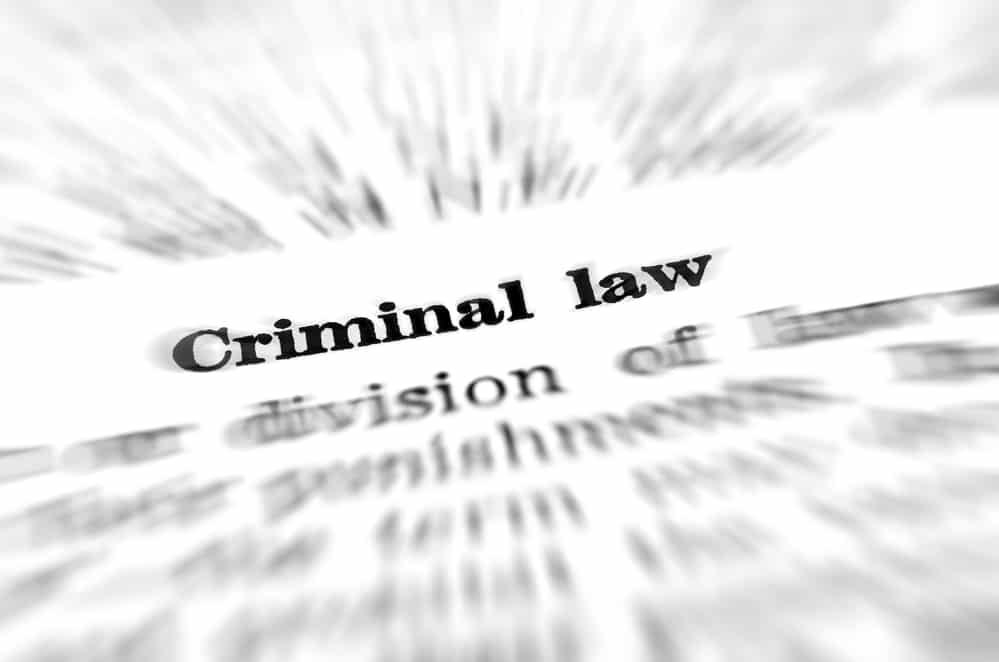
What is a Misdemeanor and What Does It Mean in Texas?
A felony charge is the most serious type of offense in Texas. For instance, types of felony crimes include murder, robbery, and burglary. The lowest felony category is a state jail felony. The highest felony charge is capital murder. Punishment for a felony conviction ranges from 180 days in state jail to death, depending on the crime.
A misdemeanor charge is a lesser charge than a felony. The punishment for a misdemeanor doesn’t include death. However, it does include some harsh penalties.
Texas Classifies Misdemeanors by Classes
Texas classifies misdemeanors by categories called classes. These classes denote the seriousness of the crime.
Class A Misdemeanors
A Class A misdemeanor is reserved for any offenses that are considered serious enough for jail time. Criminal acts in this category include carrying a gun without a permit and pimping.
Carrying a gun without a permit is an offense where a person possesses a gun without seeking a state permit to have one. Pimping is the crime of making money from a prostitute’s earnings. It also includes promoting prostitution. Other criminal offenses in this category include:
- Assault with bodily injury
- Second driving while intoxicated, or DWI, offense
- Cruelty to animals
- Resisting arrest
- Violation of a protective
The penalty for a Class A misdemeanor is:
- Up to one year in county jail
- $4,000 fine
- Fine and county jail time
Class B Misdemeanors
A Class B misdemeanor is reserved for crimes that don’t fit into the category of a harsh crime, but are still serious enough to warrant jail. Criminal trespass, prostitution, and false report to a police officer are types of Class B misdemeanors. Criminal trespass occurs when a person enters into or remains on another individual’s property without permission from the property owner.
Prostitution occurs when a person offers something of value in exchange for a sexual service such as sexual intercourse. Filing a false report to a police officer is an offense, making false claims, or lying about a crime. The false report causes a police officer to start a criminal investigation.
Other crimes in this category include:
- Child enticement
- Failure to pay child support
- Indecent exposure
- Minor drug possession
- Vandalism
- Evading arrest on foot
- First offense DWI
The punishment for a Class C misdemeanor is:
- 180 days in county jail
- $2,000 fine
- Both county jail time and a fine
Class C Misdemeanors
A Class C misdemeanor is the least serious criminal offense and doesn’t include county jail time as a punishment. Public intoxication, bail jumping, and gambling are examples of a Class C misdemeanor. Public intoxication is the criminal act of being in public while having a blood alcohol concentration, or BAC, level higher than the legal limit. The legal limit in Texas is 0.08 percent.
Bail jumping occurs after a person is arrested for a crime. The presiding judge agrees to bail for the defendant. Bail is a payment a defendant gives to the court in exchange for being let out of jail while their case is being tried. In exchange for the bail, the defendant promises to appear in court. The defendant doesn’t keep the promise. Instead, they flee the city or state prior to their case being resolved.
Gambling involves making a bet in exchange for something of value. It’s illegal in the state to play poker, slot machines, or table games for money.
Other crimes in the category of a Class C misdemeanor are:
- Leaving a child in a vehicle
- Possession of an alcoholic beverage in a motor vehicle
- A minor driving while intoxicated
- Simple assault
- Disorderly conduct
The punishment for a Class C misdemeanor is a $500 fine. A judge may order the defendant to complete community service. Community service is the act of volunteering time at an organization or working on a city project for a specific number of hours.
Multiple Misdemeanor Punishments
A person may be charged with a crime and plead guilty or be found guilty in court. The person may commit the same misdemeanor crime again. It’s considered their second offense. They could commit the same crime for a third or subsequent time. Each time the offense is committed, the punishment may increase.
One example of a repeat misdemeanor resulting in a harsher penalty is DWI. DWI involves operating a motor vehicle while intoxicated. The term “intoxication” may refer to a person being over the legal limit to drive, or their ability to operate a motor vehicle may be impaired by drugs and/or alcohol.
The first DWI offense is a Class B misdemeanor punishable by 180 days in county jail. If they commit a second DWI and are found guilty, they will be punished according to the Class B misdemeanor punishment. It’s up to one year in county jail.
They commit a third DWI offense. They plead or are found guilty. Their punishment will not be a misdemeanor. It’s a felony in the third degree. They may go to prison for two to 10 years.
What to Do When Charged
A misdemeanor conviction can change your life forever. Don’t let that happen. Choose a criminal attorney you can trust and who has the experience to get your charge reduced or dismissed. He will also build an aggressive defense in case there is a trial.
